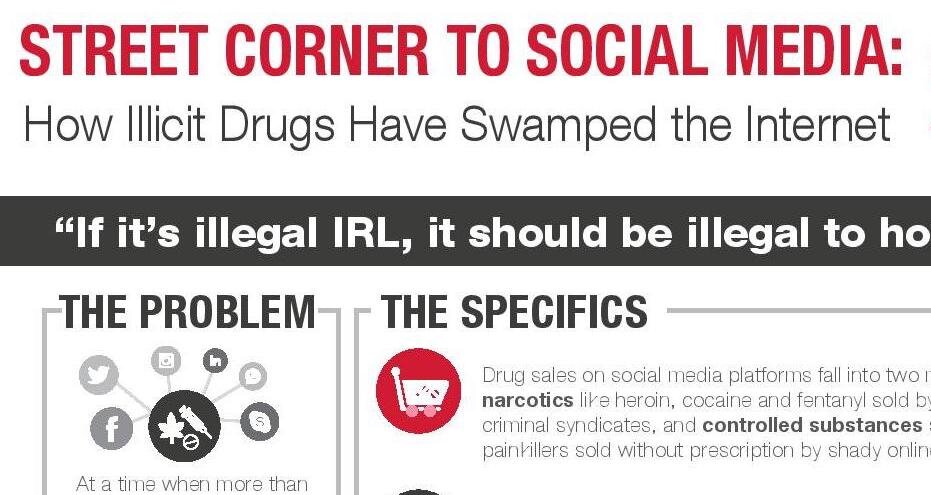Drug Trafficking

ACCO’s Jaime Puerta responds to Jacqueline Beauchere, Snapchat’s global head of platform safety, about what the company is doing to prevent drug-related content and activity on its platform.

A CBS News investigation found that the sale of illegal drugs is booming on social media, making access easier for teenagers. Features ACCO expert Kathleen Miles. Click here to watch the video.
Deceptive drugs made of fentanyl are killing young people across America at an alarming rate. Watch this powerful documentary featuring ACCO members of VOID, whose children lost their lives after ingesting fake prescription pills made of illicit fentanyl through social media platforms.
Eight parents mourn children poisoned by deadly pills bought on Snapchat. Read the NBC News article featuring ACCO members from VOID and the Alexander Neville Foundation.
ACCO expert Tim K Mackey has developed natural language processing and machine learning to identify COVID19 scams on Twitter and Instagram. Organizing this data, he has also created a customized dashboard to enable public health intelligence and provide reports to health authorities. Read the report.
At a time when more than 60,000 Americans die from drug overdoses each year, dangerous narcotics and fake pharmaceuticals are widely available for purchase on social media platforms. Download the fact sheet.
Machine-learning software to snare scammers hawking fake COVID-19 test kits on social media is being built by a tiny startup funded by ACCO expert Dr Tim K Mackey. Read the article.
A five-month investigation conducted in 2015, found a total of 1778 tweets that were identified as marketing the sale of controlled substances, 771 tweets were detected as marketing the sale of fentanyl. 90% had embedded hyperlinks, 46 were “live” at the time of the study’s evaluation. Some online pharmacies originated in high-risk countries such as Pakistan where individuals have been prosecuted for illegal importation of opioids. Read the report.
For years, Tim K Mackey has been researching the sale of opioids and illicit drugs online, tracking how dealers have used social media to push controlled substances. But over the past few weeks, he has found himself trying to track the black market for fake Covid-19 tests and treatments. Read the article.
Another investigation conducted in 2017 found that among 213,041 tweets containing keywords codeine, percocet, vicodin, oxycontin, oxycodone, fentanyl, and hydrocodone, 692 were associated with illegal online marketing and sale of prescription opioids. Among “live” tweets, 44% directing consumers to illicit online pharmacies, 32% linked to individual drug sellers, and 21% were used by marketing affiliates. In addition to offering the “no prescription” sale of opioids, many of these vendors also sold other illicit drugs. Read the report.
Social media use is now ubiquitous, but the growth in social media communications has also made it a convenient digital platform for drug dealers selling controlled substances, opioids, and other illicit drugs. Previous studies and news investigations have reported the use of popular social media platforms as conduits for opioid sales. This study uses deep learning to detect illicit drug dealing on the image and video sharing platform Instagram. Read the report.
The government is investing in an AI-based tool that could help catch illegal opioid sales on the internet. But the same approach could find lots of other illicit transactions. Read the Vox article.










